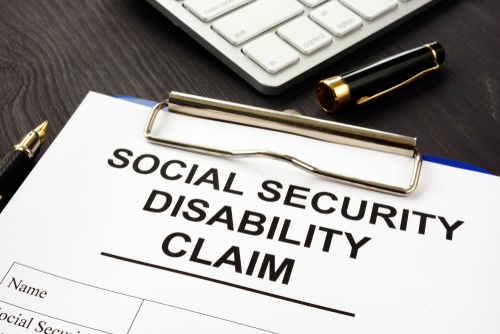
When you are on disability, or have a loved one on disability, you want to make sure you’re getting the benefits owed to you as quickly as possible. Unfortunately, this eagerness to get the application done can result in a host of common – and costly – mistakes.
1. Filing Too Quickly
A major injury that qualifies for Social Security disability insurance (SSDI) may be obvious. However, to be eligible for benefits, a claimant needs to establish that he or she is permanently and totally disabled – and that takes time.
The “permanent” designation means the disability claimant has been unable to perform substantial gainful activity for at least 12 months, or for a time that is expected to last at least 12 months. Broken legs or arms, for instance, are unlikely to be disabling for one year. Likewise, a person who needs surgery cannot be considered unable to work for a year until adequate healing time has occurred.
In other words, don’t file for disability the day after an injury occurs. Visit doctors, hire a disability lawyer, and take your time so all the proper steps are taken to ensure that you will get the benefits you deserve retroactively and for the future.
2. Filing Too Late
You want to wait long enough to file for SSDI, but you don’t want to wait too long and shut yourself out from benefits. SSDI can be paid retroactively but the limit for this to happen is the later of the date of onset of becoming completely disabled or one year after application.
Even if you are getting workers’ comp benefits or corporate long-term disability insurance benefits, you do not want to wait two or three years to file for SSDI. You could lose years of back pay.
3. Filing Without Medical Support
Every SSDI case is a medical case and requires medical support to show that an injury is real, severe, and life-altering. The decision to grant benefits is always based on the applicant’s medical records from the treating medical specialists. A one-time exam is typically not enough to serve as foundational evidence that disablement has occurred.
Disability claimants who are seeking SSDI need to be treated by the appropriate specialists and have confidence that these experts will be supportive in their application for SSDI.
4. Filing Without Knowing the Listings of Impairments
The Listings or Impairments put together by Social Security describes the specific medical criteria a person needs to meet to be considered totally disabled. While the Listings is long and far-reaching, the criteria to qualify is not always obvious.
For example, a person with mental illness may not realize that a critical consideration of their case is clinical documentation of their inability to concentrate. The Listings is a complicated, gray area, and it is critical to have an SSDI attorney on your side to help you navigate the particulars, ensure that all the necessary documentation is available as part of your application, and avoid the need to file an appeal.
Get Help as a Disability Claimant
Your disability attorney is prepared to help you avoid the frequent errors claimants make. If you have already been turned down for your SSDI claim or don’t want to risk getting denied benefits, contact Thurswell Law to schedule a consultation and find out how we can work with you from the start and get you the disability compensation you deserve. Call us at (248) 354-2222 today. We do not charge any fees until we win.
